- Lifestyle & Sports
- 28 Nov 24
Aoife Lynch of the Irish Naval Service: "No two days are the same"

Aoife Lynch was unsure what her next step would be, after dropping out of college. But by embracing her passions, and taking a leap, she’s gone on to gain an accredited trade qualification – and achieve more than she ever thought possible – through the Irish Naval Service...
Hailing from landlocked Kildare, Aoife Lynch is only too familiar with some of the common misconceptions surrounding the Irish Naval Service.
“Some people don’t even realise we have a Navy in Ireland,” she laughs. “That’s a big one. I’d be talking to people and they’d say, ‘Jaysus, I didn’t know we had that!’ They know about the Army and the Air Corps, maybe, because that’s in Dublin. But the Navy’s based down in Haulbowline, Co. Cork.”
Her own knowledge of the Naval Service – the maritime component of the Irish Defence Forces – was also very limited, before she joined in 2016. But after realising that her college course wasn’t for her, she was ready for a change.
“I didn’t know what I wanted at 17 or 18,” Aoife reflects. “I just went to college because everyone else was doing it. So I was in Tallaght, studying Bioanalysis – the complete opposite of what I’m doing now! But I wasn’t liking it, so I left, and I worked in a pub in Walkinstown.
“It was one of my dad’s friends who suggested the Navy,” she continues. “I didn’t know anything about it, but I enjoyed working on engines at home, and taking apart cars with my dad. We also have a boat at home, and I liked going out on that, doing a bit of fishing.”
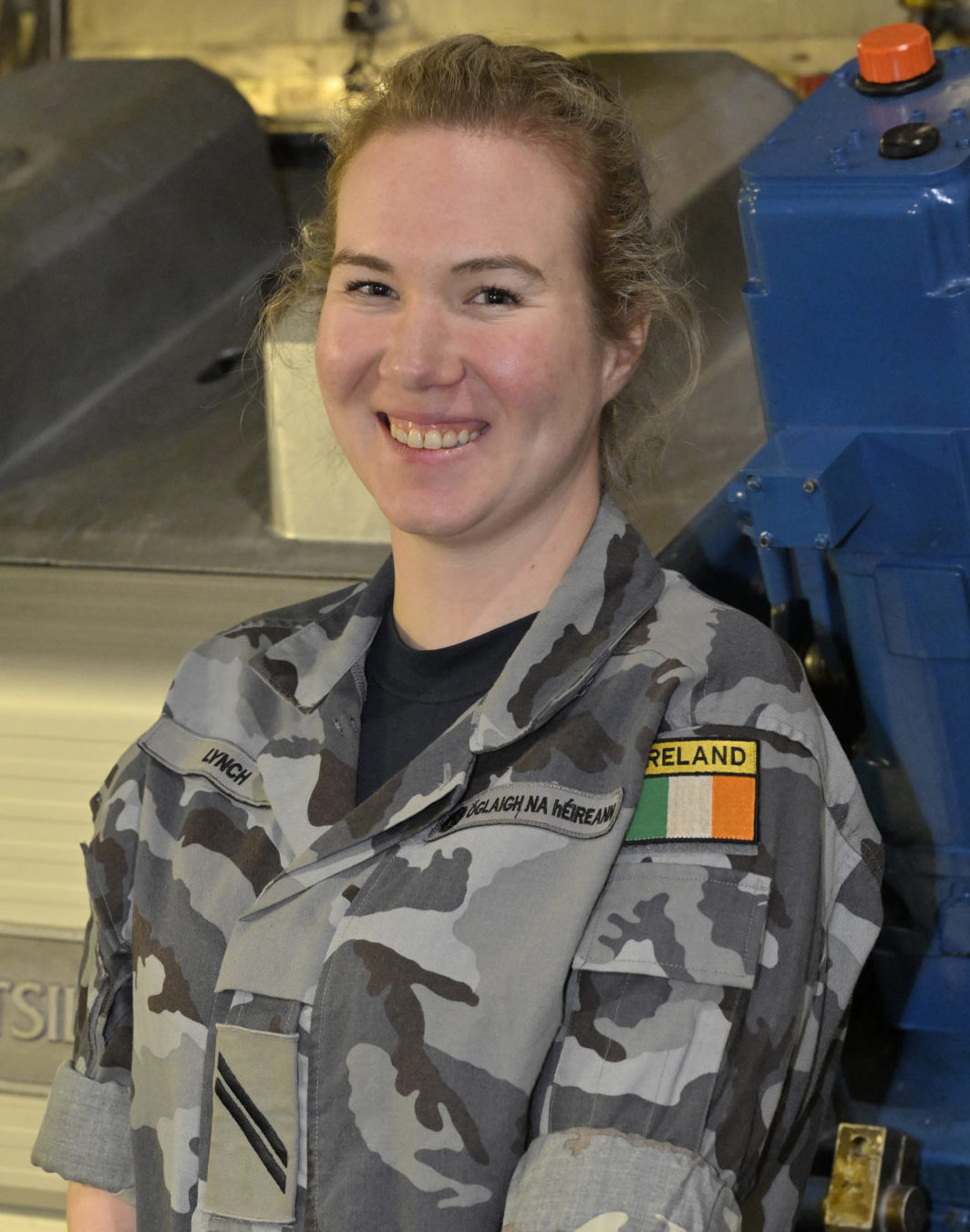
Aoife Lynch
As the State’s principal seagoing agency, the Naval Service takes on numerous responsibilities – from defence requirements to humanitarian relief. There are numerous entry points for a career in the Naval Service, each offering a different career path, and a unique set of challenges and opportunities.
Naval Service Recruits – who must be aged at least 18, and under 39 – undergo 12 weeks of Recruit training when joining, with a focus on becoming physically fit, disciplined and motivated, as well as gaining basic military and naval skills in order to prepare them for further training.
From there, they choose a Naval Service Branch – whether that’s Seaman’s, Communications, Mechanicians or Supplies – and embark upon their Branch training, giving them the specialised skills they’ll need to carry out their role at sea and ashore.
“I was in the Seaman’s for about two-and-a-half years,” Aoife tells me. “You could be driving the RHIBs (Rigid Hull Inflatable Boats) one morning, and then cleaning the ship. Then the next morning you could be firing the weapons.”
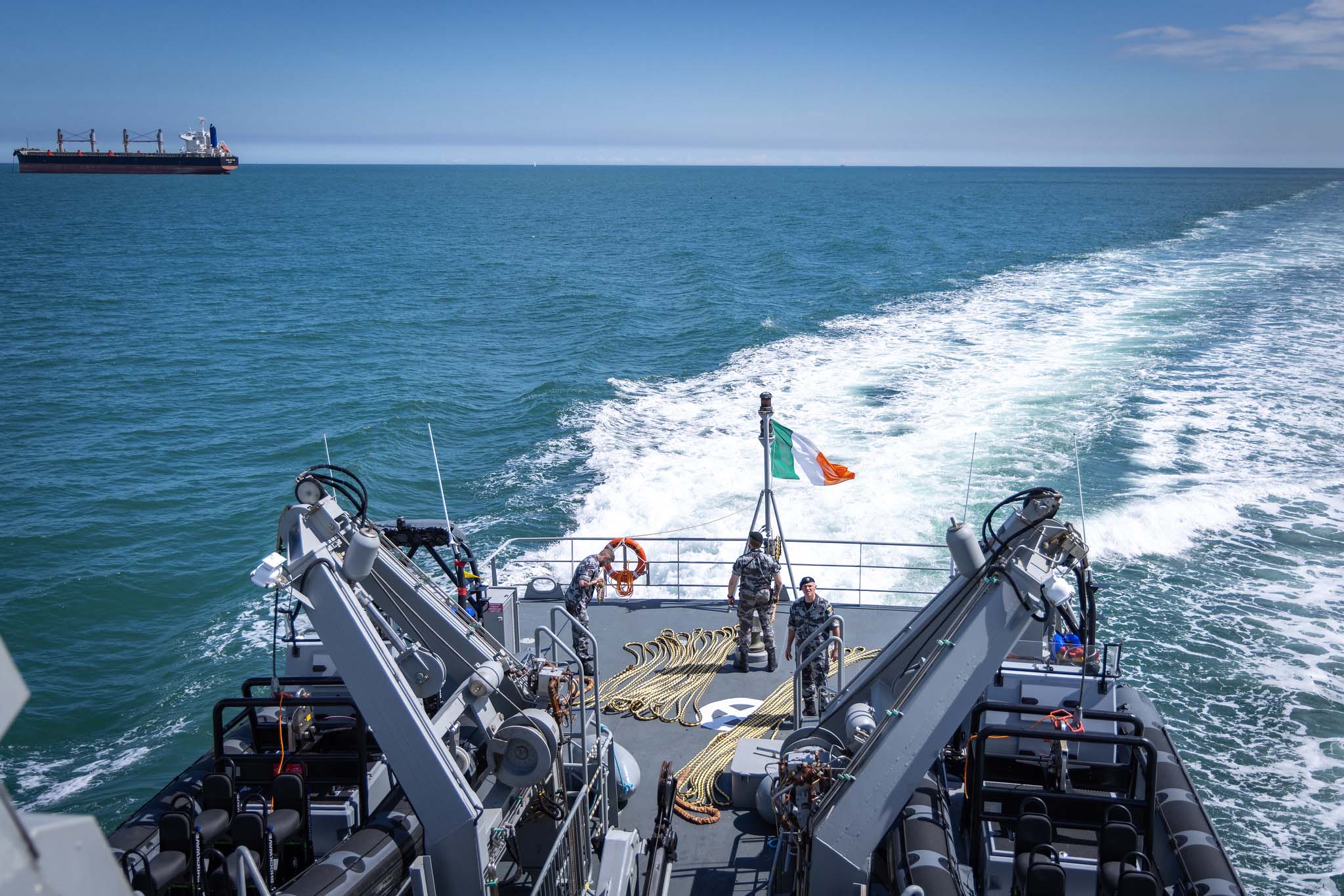
But Aoife soon became aware of the possibility of gaining a trade within the Naval Service. She decided that she wanted to take a leap, and train to become an Engine Room Artificer (ERA).
Onboard the ships, the ERA maintains and operates the main engines, auxiliary machinery and various other supporting systems and equipment. To become an ERA, Aoife had the choice to complete the Mechanical Automation and Maintenance Fitter Apprenticeship through SOLAS, or the Marine Engineering Degree in the National Maritime College of Ireland.
“I went the trade route,” she says of choosing the former, “because it’s a more hands-on experience.”
By completing the four-year course, Aoife not only gained a trade and an internationally recognised qualification, but had it completely paid for by the Naval Service – while still receiving her full salary. In return, she explains, you pay the Naval Service back through “time and service.”
“I’m now one of the first female ERAs in the Navy,” she resumes. “And there are more coming down the line. We’ve got Direct Entries coming in, and two of them are women, so I’ll be talking them through it, and seeing if they’d be interested. Sometimes you need one person to give you that push for something like that – something that’s been seen as a male-orientated thing.”
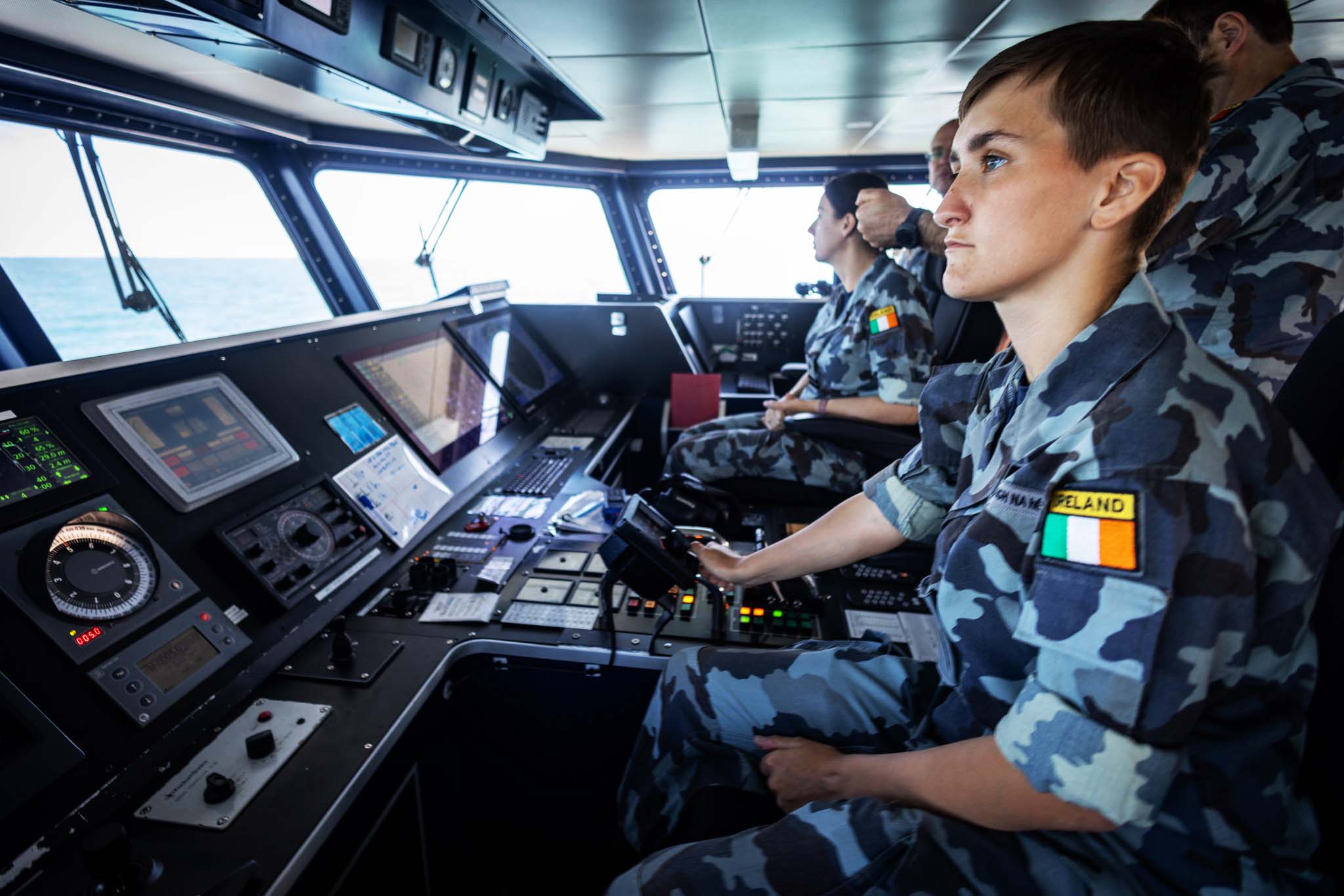
There’s also plenty of room for further personal development and progression, she tells me. Next year, after completing further career courses – which are designed to develop individuals’ skills in areas such as leadership and management – Aoife will be eligible for promotion to Petty Officer Engine Room Artificer (PO/ERA).
“That’s basically the equivalent of a Sergeant in the Army,” she tells me. “At the moment I’m an AB (Able Rate) – a Three-Star Private – so I’d be jumping up the ranks. Then I’d go to sea for two years, and I could come back and do a degree, which the Navy will pay for. And then I can go for another promotion again.”
As Aoife has found, a career in the Naval Service has numerous benefits, including competitive pay and health support benefits. There’s also opportunities to see the world – with the Naval Service, as a part of the Defence Forces, assisting in peace support, crisis management and humanitarian operations overseas.
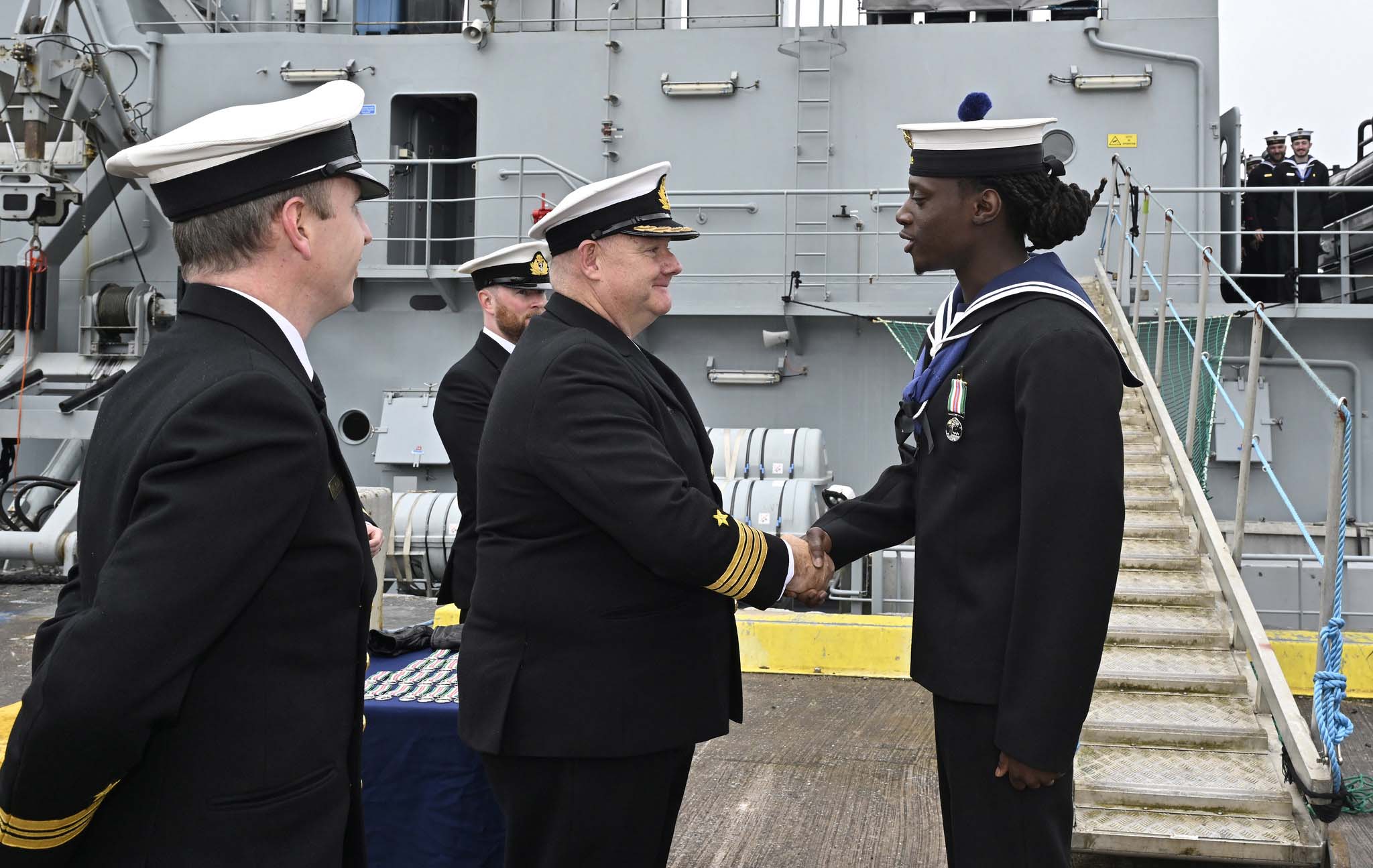
“We’re usually away for four weeks at a time, and then we’re in for four weeks – but we might only be off for two of those weeks, so that is a challenge for some people,” she acknowledges. “But I love my sea time. I’ve gone to sea so many times, and I do really enjoy it.
“I’ve been to Liverpool, Spain and Belgium with the ship,” she continues. “And you’re also in and out of places all around the coast of Ireland. Last year a few of them did the Lebanon trip, and stopped off in Italy and Turkey too.”
And, she points out, you can still “have your downtime too.”
“You can bring your own stuff onboard – you have your wardrobe for your computer or whatever,” she resumes. “There’s a big telly in the mess, and on some ships I’ve been on we’ve had movie nights, with someone bringing popcorn and all.”
For Aoife, gaining an accredited trade qualification has undoubtedly been one of her biggest achievements since joining the Naval Service. But there’s been other unforgettable moments along the way too.
“In 2018, I was part of the first crew to bring in LÉ George Bernard Shaw, the P64 ship,” she tells me. “I had to go over to Appledore with a crew of 42 – and I was the only female – to collect her, and bring her back over to Ireland. That was really memorable.”
Overall, she reflects, a career in the Naval Service can open countless doors – and help people to achieve more than they ever thought possible.
“They say it on the ad,” she laughs, “but it’s genuinely true: no two days are the same. You just never know what you’ll be working on. It can be challenging enough, yeah – but it’s worth it, because you can have a laugh at the end of it.
“There’s so many opportunities,” she concludes. “You can figure out what you want to do, or where you want to go, as you go – even halfway through your career.”
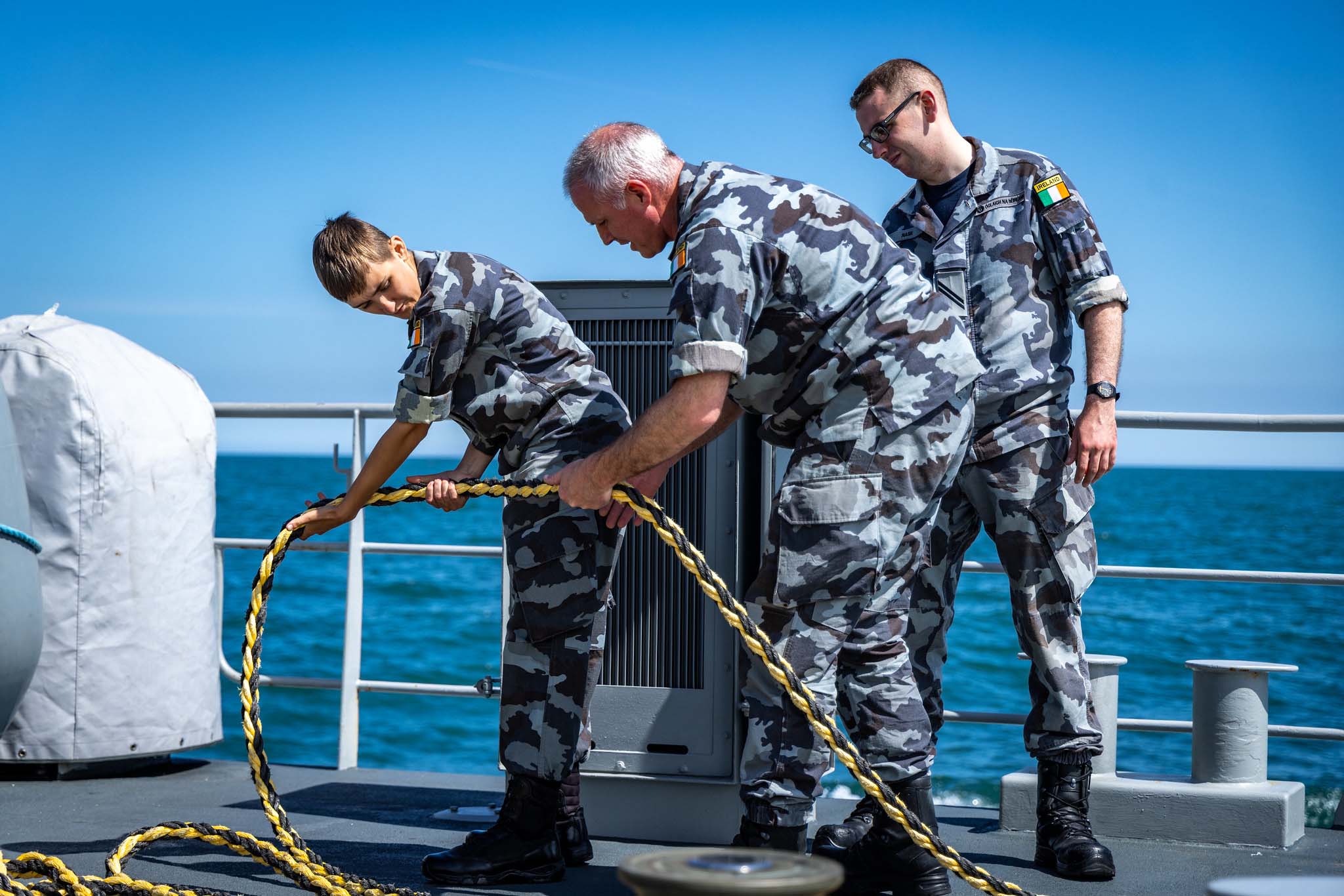
The Irish Naval Service are currently recruiting for various roles such as experienced Direct Entry positions and General Service Recruits. For further information on the different career pathways and how to apply visit www.military.ie
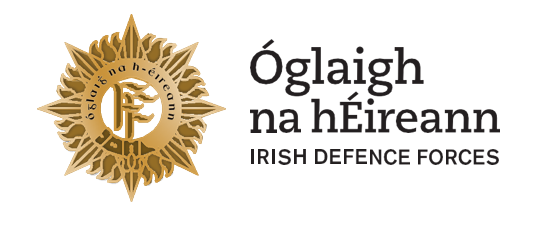
RELATED

- Lifestyle & Sports
- 19 Dec 25
Tullamore D.E.W. Distillery: Gift an experience that engages every sense
RELATED

- Lifestyle & Sports
- 15 Dec 25
Bohemian FC and KNEECAP team up for new jersey fundraising for ACLAÍ Palestine

- Competitions
- 12 Dec 25
WIN: Lunch For Two From Forge Wood Fired Pizza

- Lifestyle & Sports
- 12 Dec 25
Minding Creative Minds to hold December meet and greet

- Lifestyle & Sports
- 10 Dec 25
Ticketmaster Gift Card: Give The Gift Of Live

- Lifestyle & Sports
- 09 Dec 25




